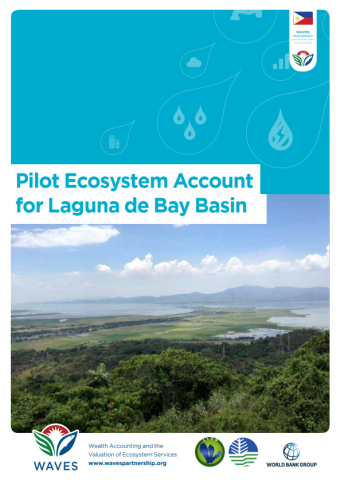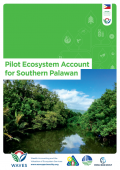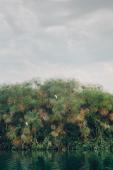
This technical report, Pilot Ecosystem Account for Laguna de Bay Basin, explores the specific challenges confronting natural resource management in the Laguna de Bay Basin, and presents the key findings of the ecosystem account developed between January 2014 to December 2015. As the largest inland water body in the Philippines and the third largest in Southeast Asia, the Laguna de Bay has been confronted with growing pressures on its ecosystems. Over the past decades, population expansion, urbanization, industrialization, deforestation, and land conversion have led to degradation of the lake water and its watershed.
This ecosystem account explores potential pathways to developing specific accounts based on the System of Environmental-Economic Accounting-Experimental Ecosystem Accounting (SEEA-EEA) framework. The account covers the Laguna de Bay watershed and the Laguna de Bay region, the administrative jurisdiction of the LLDA, and comprises the following specific accounts:
- a land account containing land cover and changes;
- a water account providing information on water quantity aspects;
- an ecosystem condition account indicating various terrestrial and water quality indicators, changes in lake bathymetry, and sediment loading;
- an ecosystem services supply and use account indicating the flow of ecosystem services, in particular, fishery production, water supply, flood retention, and soil erosion regulation.
Although experimental in nature, the account is replicable across time and geographical scales (e.g., national). It is also useful in policymaking. Through this groundbreaking endeavor, substantial capacity has been built locally to produce ecosystem accounts and update them on a regular basis, thus helping ensure effective policy making and sustainable management of natural resources.



